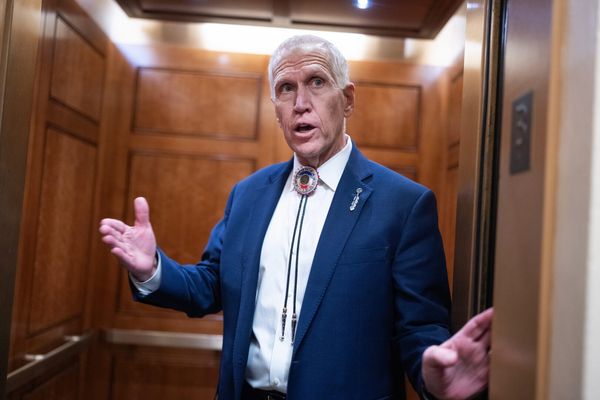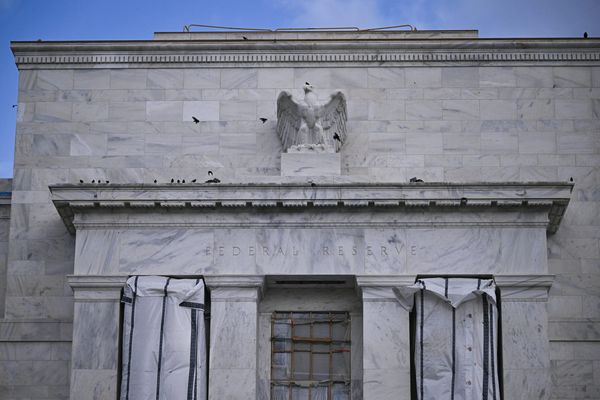
A longtime worker at the Bridgeport bank that gave Ald. Patrick Daley Thompson (11th) the $219,000 at issue in his federal tax trial testified Tuesday that Thompson picked up the checks in the bank president’s office — including once before business hours.
Alicia Mandujano pleaded guilty last month to a conspiracy charge, admitting her involvement in a multimillion dollar embezzlement scheme at the now-shuttered Washington Federal Bank for Savings.
Mandujano also agreed at the time to cooperate with federal prosecutors, and on Tuesday she took the stand as a key witness in Thompson’s trial following opening statements.
Thompson is not charged in connection with the alleged fraud at Washington Federal. The bank was closed by federal regulators in December 2017, days after its president, John F. Gembara, was found dead in a bank customer’s $1 million Park Ridge home.
Rather, Thompson is charged with filing false federal income tax returns for the years 2013 through 2017 and lying to regulators about how much money he owed the bank. A jury of four men and eight women was chosen Monday to hear the case.
The bank gave Thompson a $110,000 loan in November 2011, followed by additional payments of $20,000 in March 2013 and $89,000 in January 2014, according to Thompson’s indictment. He made just one payment on the loan, in February 2012.
Later, after Washington Federal closed, Thompson settled the debt with the Federal Deposit Insurance Corp. by paying the $219,000 principal balance, but no interest.
Mandujano testified that Gembara told her to let Thompson into the bank before business hours so he could pick up the first payment in his office. She said Thompson also picked up the second and third payment in Gembara’s office, even though it was on the second, non-public floor of the bank.
But Mandujano later agreed with defense attorney Chris Gair there was nothing “sinister” about picking up the checks that way. And Gair questioned her aggressively about her altering of bank records to make it look like Thompson made payments on the loan — something she admitted to when she pleaded guilty last month.
Gair called the records “a big lie” and added, “Mr. Thompson never told you to do that.”
“Correct,” Mandujano replied.
Mandujano treated Thompson’s loan as a mortgage, leading the bank to wrongly send him interest forms that were then used by his accountants to wrongly claim mortgage-interest deductions on his tax returns.
Thompson had been expected to pay 4.25% interest on the $110,000 loan, according to one record introduced in the case. But the feds say he didn’t pay any interest at all.
Gair has said Thompson didn’t realize his accountants had claimed the deduction.
Robert Hannigan of Bansley & Kiener, the firm that handled Thompson’s tax returns, had begun to testify Tuesday when the trial wrapped for the day. He is expected back on the stand Wednesday. Bansley & Kiener is the same firm that gave Washington Federal a clean bill of health a few months before it was shut down.
During opening statements, Assistant U.S. Attorney Brian Netols told jurors that Thompson should have known the tax returns his accountants prepared were based on fraudulent documents.
“He never told them he wasn’t making payments to Washington Federal,” Netols said. “And he never told them he didn’t have a mortgage from Washington Federal. Without those two things, those tax returns are false.”
But Gair said Thompson was too busy at his private law practice and on the City Council to review the tax returns he and his wife filed with the Internal Revenue Service between 2013 and 2017, when they paid $822,000 in taxes.
“When you’re paying $822,000 in taxes, you probably won’t notice there was a deduction of $3,000 a year that you weren’t entitled to,” Gair said. “When he found out, he did what any honest person would do: He amended his tax returns. He pays back that amount that was mistakenly deducted on his tax returns — $15,000.”







